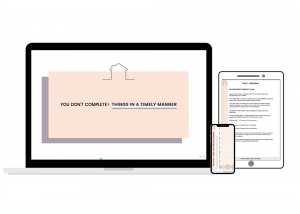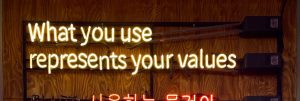How the concept of reflect practice can help improve your growth and success in real estate
In the current fast paced market. We find ourselves breathlessly racing from house viewings to buyer consultants, to listing presentations and everything else in between. We are motivated to capitalise on this moment and not give too much thought to what has gone before. Always on to the next transaction to close. In our desire to make hay whilst the sunshines. We often neglect those clients, listings or transactions. That fell by the wayside and taking time to pause and consider why this happened, has been give a bad rap.
Taking time to contemplate or question why, is seen as an insignificant point. After all, we consider being focused on taking action and closing sales as far more important to our long term growth or success.
However through my work as a coach. I have come to realise that developing a clear historic perspective on what has gone before and how that affects us. Leads to faster growth, more effective action taking and clearer results.
Quite simply, those who make time to reflect actually succeed in moving significantly further forward than those who choose not too.
Why is reflective practice beneficial in real estate?
“The longer you can look back, the farther you can look forwards”
Winston Churchill
This statement has since been validate many times in newer research. Showing that the value of making reflection part of your business process, will help you to perform better. Because, taking that time to reflect on what you have done will teach you how to do it better the next time.
Reflection moves you beyond simply problem solving. By allowing you to deliberately focus on your experiences and assumptions so as to explore new ways in which you can frame your experiences and increase your awareness around your own assumptions, values and beliefs and how these shape your interactions with your clients.
Therefore, by incorporating reflection into your business as real estate agents. It consolidates your understanding of the problem you faced and helps you to invent better or more general solutions for next time. This allows you to turn real life experiences into knowledge. Which when you link that knowledge to practise by using reflective tools. Enables you to improve on what you do and how you do it.
What is reflective practice?
There are two main types of reflection that are most commonly referred too. Reflection in action and Reflection on action. With the most obvious difference being when they happen.
Reflection in action
This type of reflection takes place when you are faced with an unknown situation and are involved within it. “in the moment” so to speak. It requires that you use your observation, listening, touching or feeling skills to problem solve.
You will need to bring aspects of your job to a conscious level. So that you reflect on it as it happens and try out things on the spot.
Previously this may have been referred to as “problem solving”. Or you may consider this as “thinking on your feet” in a sense. However it is about learning and understanding a new perspective that you may not of considered before.
This type of reflection will tend to be very intuitively and it can be an extremely efficient method. As it will allow you the opportunity to react and change to the situation as it evolves.
However creating the awareness you need to implement reflection in action can take some time to develop. It is often a skill attributed to those who are associated with “expert” practice. However as a real estate agent, these skills are ones you should be using in almost every interaction. Therefore becoming accustomed to this type of reflection will be easier for you to manage in the hectic days of business.
Reflection on action
This type of reflection occurs after the event or situation has taken place. Where you can take time to reflect upon your skills or the situation with view of making future improvements.
It allows for you to take a step back from a situation and review it will a clear mind. However it will require that you make time in your schedule to do it. Something which can often be challenging as a real estate agent. Despite this, I would highly recommend finding a place for this type of reflection as it plays an important part in your professional development.
This type of reflection is ideal for reviewing your month end, quarterly plan or long term goals as you progress towards them. By taking time to review what has gone on. It allows you to see the challenges faced and make adjustments accordingly. Encouraging ideas on what you need to change for the future. However you must keep in mind that with reflection on action. It may be that you are working theoretically and on assumptions or ideas. That in practise could be difficult to implement. It may require testing and trial and error as you will not always have the practical experience to know if your
Incorporating reflective practices into your real estate business.
By implementing reflective practise into our real estate businesses. We are able to seek out change, growth and development, through analysing both subjective and objective date from our experiences to take decisive action or plan for the future.
In effect, you will create a plan of action or experimentation. Based upon what you have learned from your relevant experience or information. This may be either positive, negative or a mix of the two. The objective data you’ll use may be evidence or knowledge based. Whilst the subjective data will be the thoughts, feels or reactions that you have had around that experience. Combined, it allows you to assess and understand the situation as it relates to you and seek validation or relevance for that particular situation.
Whilst most of us will already reflect on matters at some level. As I mentioned it earlier – “thinking on your feet”. This tends to be more reactive than proactive, which is valuable giving it will produce immediate solutions. However it does’t always allow fo us to develop these reflection past the immediate situation. Meaning that you will often. Not retain the valuable pieces of learning once you have moved on to the next task.

The skill is to become more conscious and deliberate in your thinking. So that these moments of reflection can create conclusions and actions you can carry forward to new experiences so as to make future improvements. That will prevent you from making the same mistakes again and create a positive change.
Put simply, if you think about a task as you do it. It can lead to you making changes that will improve the outcome of that task.
As example: If I were to take on a new listings without any clear idea of how I intend to market it. I may find that I fail to sell it in a timely manner. Leading to dissatisfied clients and possibly the loss of exclusivity.
Noticing and reacting to what happens in this situation, may not be enough for me to ensure I don’t make the same mistake again. Whereas, deliberately reflecting on what happened can help me to think about what I can do to:
Resolve the situation. So I can strengthen the marketing, attract buyers and bring the clients back on side.
Avoid it happening again. Ensuring I thoroughly plan out a clear marketing strategy for each individual property based on its merits.
This example, leans itself to the Kolb learning cycle for reflective practise whereby
- I have an experience
- Reflect and evaluate what went well and what didn’t
- Consider ideas and options that can be changed
- Plan a different approach
Therefore, if I then remember with my next listing. To plan out a detailed marketing strategy for promoting the house. I should achieve a better outcome. i.e a timely sale of the property for my sellers. This can then lead to extended reflection on what methods worked the best to produce that outcome.
“If you always do what you’ve always done, then you’ll always get what you’ve always got…”
The concept is simple, take the time to reflect on what it is you have done. Look at what it is that can be improved and implement a new approach for a better outcome.
More importantly, reflection allows you to understand your strengths and weaknesses and become a better realtor. Keeping you encouraged and focused on a plan that will help develop your capabilities. Which more crucially means, you are able to minimise serious risks. Optimise the quality of your business on a wider scale and avoid stagnation through constant innovation.
Using reflective practice in your real estate business
It does’t take a lot for you to start making use of reflective practise as a real estate agent. You simply need to become mindful and intentional when thinking about the thinks that happen in your business.
There are also a number of different ways in which you can use reflective practise. On a whole range of different experiences and situations and the best part is…
reflective practice doesn’t need to find extra time!
Build in reflection as part of your end of day. Whether it be 10 minutes of quiet time before you close down your computer or whilst you are on your drive home. Use that space to give some intentional thought to what has happened that day.
You can even use that time whilst you walk the dog or work-out. To allow for reflective practise instead of wondering thoughts.
When doing your monthly expenses or quarterly plan and review. Make time to reflect on what has and hasn’t worked and how you may carry those learnings forward into your next month/quarter.
Reflections don’t have to be more than processing your experiences in your mind. However written records can be helpful in keeping track of your memories. So too can collaborating with a coach or mentor to determine your insights, and how to implement those learnings in your actions.
There are several tools I recommend clients use when using reflective practise.
The first in my daily reflections sheet, that allows you to jot down your thoughts, feelings and learnings as you reflect at the end of the day.
The other is my wheel of real estate. Which is an excellent tool to help you take stock of where you currently are and where you need to be. I highly encourage all my clients to use this within their quarterly planning sessions. So they you can reflect upon what is and isn’t working to get them to their real estate goals.
Just remember whichever method you decide upon. Be sure to include the basic process for linking and progressing through the stages of reflection, understanding and then action.
Conclusion
Whilst we all tend to reactively reflect on situations as they unfold. The skill of becoming deliberate and intentional with this practise will ensure learnings are carried forward and implemented into future experiences. Allowing for both personal development and growth within your real estate business.
The strategies outlined here are simple and easy to incorporate in your day to day of real estate and will make a signifiant difference in the success of your business. However it is the consistency of implementing these new habits that many struggle with.
If you feel you would like more support in using reflective practises to help develop and grown for real estate business. Then coaching can help with this.
I offer a free 30 minute strategy call as a starting point. In which I can help you to reflection on a particular experience so that you can uncover learnings and determine how to implement these into your future actions.
To book your session or to find out more about how real estate coaching can benefit your growth and success. Please clink this link: https://calendly.com/keely-capel/30min




